一歩先の医療の提供
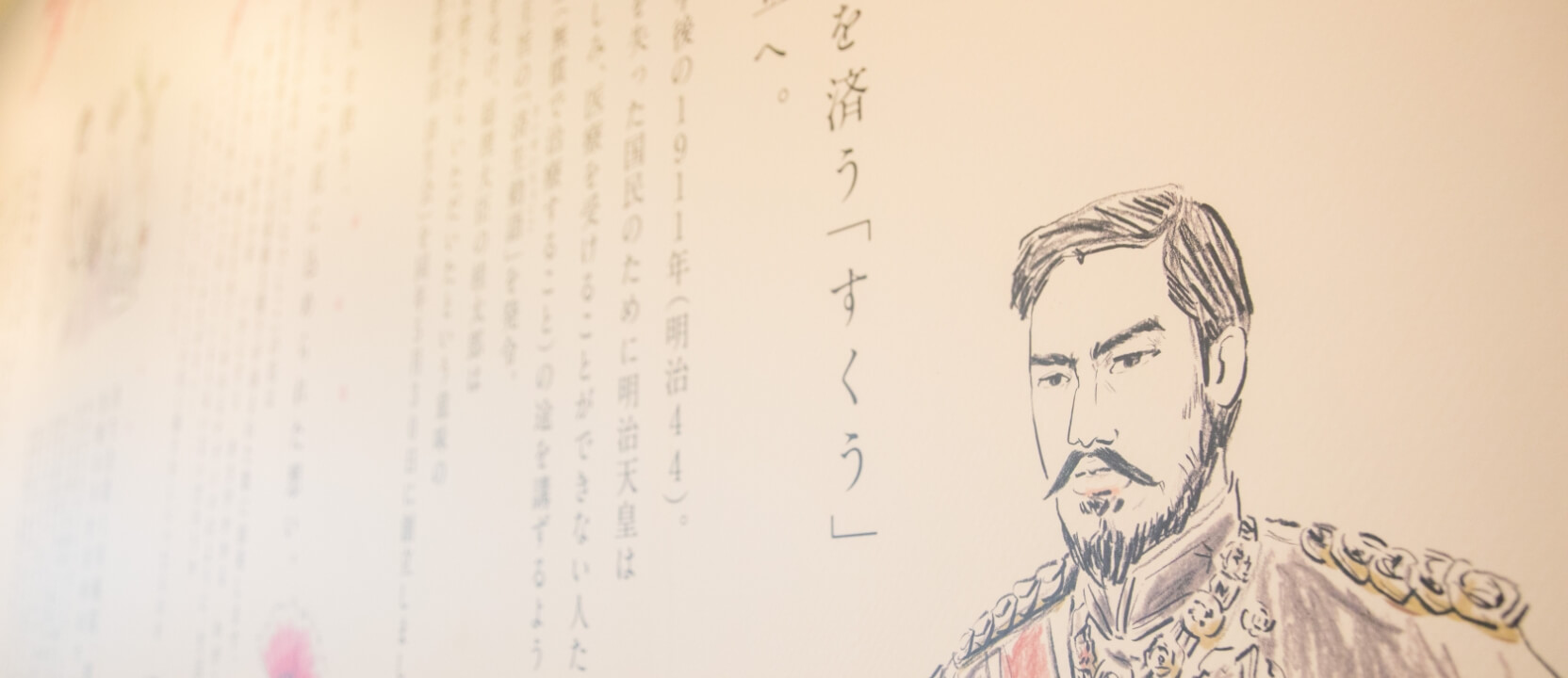
患者さんを第一に考えた、東部病院の「一歩先の医療」
当院では患者さんのQOLを重視し、患者さんとご家族が満足できる医療を追求しております。
身体への負担が少ない治療法で早期回復・社会復帰をご支援し、標準治療を基本とした「オーダーメイド治療」でおひとりお一人に寄り添います。
また「一歩先の医療」を目指して新しい技術を導入し、数多くの選択肢から患者さんに最適な治療法をご提案しております。

ロボット支援手術ダビンチ
4本のロボットアームに内視鏡や電気メスを取り付け、3D画像を見ながら医師が操作。2台完備で手術の待機期間を最小限に。
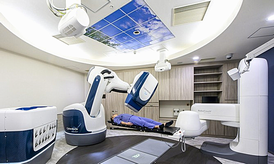
放射線治療サイバーナイフ
放射線をあててがん細胞を破壊する治療法。「手術」「化学療法」と並ぶ、がんの3大治療法のひとつ。
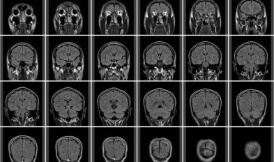
脳卒中治療
脳梗塞やくも膜下出血など、一般的に脳卒中とよばれる病気の治療は、命に関わるため一刻も早い対応が必要です。
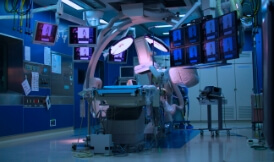
低侵襲カテーテル治療
開胸や心臓を止める処置不要で、カテーテルという細い管を足の付け根などの血管から挿入し治療が完結します。

診療特定看護師
国の定める研修を受け、医師の包括的指示のもとであれば独自の裁量で医療行為が可能な看護師。
ロボット支援手術ダビンチ

繊細緻密な作業が正確に
出血が少なく回復も早い
周囲に血管や尿道などが網の目のように走る前立腺の手術では、繊細な作業が求められます。ダビンチのロボットアームは人の手以上に繊細に動くことができるため、細い尿道の縫合や神経や血管の剥離など、緻密な作業を正確に行うことが可能。開腹手術よりも傷が小さく、出血も痛みも少ないため、術後の回復が早いのが特長です。
ダビンチ手術の対象疾患
保険適用
- 前立腺がん
- 肺がん
- 良性子宮疾患
- 肝臓がん
- 腎盂尿管移行部狭窄症
- 膵頭部腫瘍
- 胃がん
- 腎細胞がん
- 縦隔腫瘍
- 骨盤臓器脱
- 直腸がん
- 副腎腫瘍
- 子宮体がん
- 大腸がん
- 腎盂・尿管がん
- 膀胱がん
- 膵体尾部腫瘍
- 褐色細胞腫
自由診療
- ※施設基準を満たすと保険適用になります
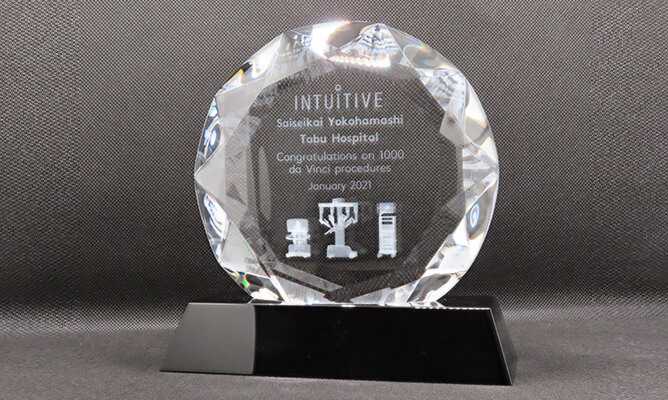
ダビンチ手術2000症例到達
2023年12月に手術支援ロボット「ダビンチ」による手術が2000症例に達しました(写真は1000症例到達の記念品です)。
当院は今後も引き続き、最新技術を積極的に取り入れ、手術の質の向上に寄与して参ります。
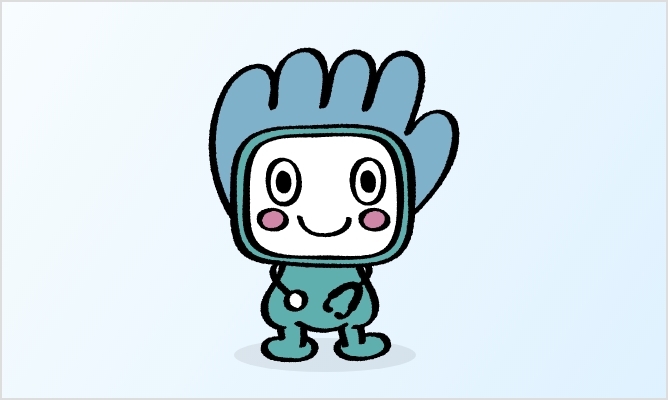
ロボてくんと知る手術支援ロボットダビンチ
効果的でからだに負担の少ない治療法がそろっている
そのひとつがダビンチ、医師の技量とともに進化し続けます
ロボット手術センター/石田 勝
「持病があるから手術は難しいといわれた」「入院したくない」「副作用が心配」「通院が大変」など、患者さんによって病状やニーズはそれぞれです。東部病院では、手術支援ロボット「ダビンチ」、ロボット型放射線治療装置「サイバーナイフ」、「密封小線源治療」といった先端医療を導入していることで、一人ひとりに合わせたオーダーメードな治療法を選択することが可能です。「ダビンチ」は2012年の導入以来約1,000名、「密封小線源治療」は2007年の導入以来約300名を超える患者さんへの手術実績があり、良好な治療成績を得ております。患者さんに最善の医療を提供できるよう、スタッフ一同、確信と誇りを持って治療を行っておりますので、ぜひご相談ください。
放射線治療サイバーナイフ
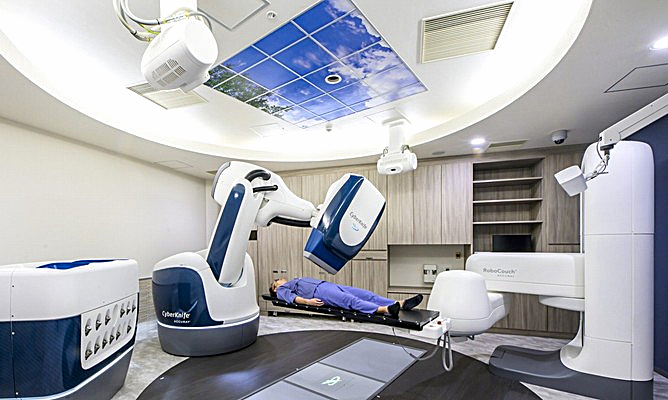
CT検査で正確に位置を定めて照射計画を立てる
当院では、日本ではめずらしく、放射線治療の事前検査にCT装置を導入しています。最新のCT装置を用いた検査により、がんの位置を正確に把握した放射線照射計画を立てることができ、周囲の正常な組織へのダメージを最小限に抑えることが可能です。
サイバーナイフでがん細胞だけをピンポイントで狙い撃ち
当院では2011年4月に、高精度のロボット型放射線治療装置「サイバーナイフ」を導入しております。がん細胞だけにピンポイントで十分な放射線を照射でき、脳や頭頸部だけでなく肺や肝臓、膵臓、前立腺や腎臓など、幅広い部位のがんに使用実績があります。
サイバーナイフの特長
自動追尾システムが治療中の患者さんの位置を画像撮影や呼吸状態でチェック。患者さんが動いてしまっても標的のがんを自動的に追いかけ、位置を補正します。治療による痛みもなく、1~5回程度の外来通院で治療ができるため、仕事や家事など普段の生活と両立することができます。
照射前の診断技術がものをいう「放射線治療」
当院には国内屈指、世界的にも珍しい技術がある
放射線治療科/塚本 信宏
当院では、最新のCT装置によって病巣の位置を正確に把握するため、正常な部分への影響を最小限にとどめた放射線治療が可能です。また、2011年に導入したサイバーナイフは、さまざまな方向からピンポイントでがん細胞を狙い撃ちすることができます。その特長を活かし、当院では転移がんの治療にも注力しています。全身へ転移したがんは一般的に治療が難しいとされていますが、当院の放射線治療では病巣へピンポイント照射が可能であるため、全身への転移が複数あっても身体への負担が少なく治療ができます。
脳卒中治療
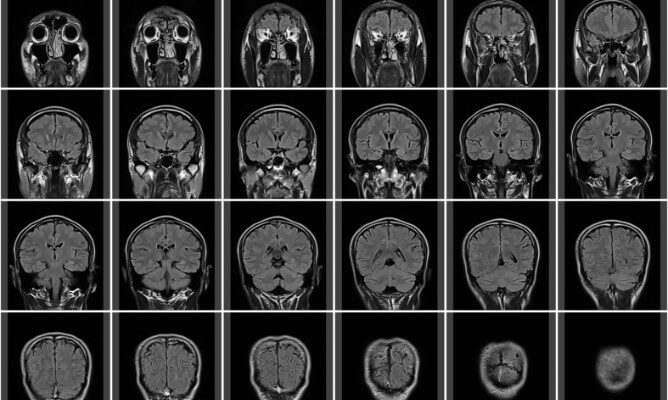
三次救急医療機関ならではの24時間365日対応
脳卒中は、1分1秒が命を左右する病気です。三次救急医療機関である当院では横浜市の救急医療体制と連携し、救急隊からの連絡にすぐに応答できるホットラインを設置。24時間365日、一刻を争う超急性期医療に対応できる体制を整えております。
最新の脳卒中治療を提供
脳梗塞が起こったときは、発症してから4時間半以内に、血管に詰まった血栓を溶解する治療を開始する必要があります。当院では、血栓を溶かす「t-PA療法」や脳動脈瘤の破裂を防ぐ「コイル塞栓術」など、最新技術を取り揃えて脳卒中治療を行っております。
「脳神経センター」「脳卒中ケアユニット(SCU)」による集約的治療
脳血管神経内科/脳血管外科/脳血管内治療科からなる脳神経センターの各分野において高い技術を持った専門医が24時間体制で治療にあたり、Stroke Care Unit という脳卒中専用の集中治療室でケアしています。
1分1秒を争う脳卒中治療
24時間365日専門医がスタンバイし、麻痺のない最良の予後を目指す
統括院長補佐/丸山 路之
脳卒中は1分1秒でも早く治療を開始することで、患者さんの症状をより改善できる時代になりました。当院では脳神経内科と脳神経外科が連携し、24時間365日、いつでも専門医が高度な治療を行えるよう万全の体制を整えております。横浜市では、救急の患者さんは当院など超急性期医療を行っている病院に搬送されます。治療終了後は地域の先生のもとで治療やリハビリを続けていただき、何かあった場合にはこちらにご連絡いただくような地域の医療連携もできております。当院で脳卒中治療を受けていただく際には、安心してお任せいただければと思います。
低侵襲カテーテル治療
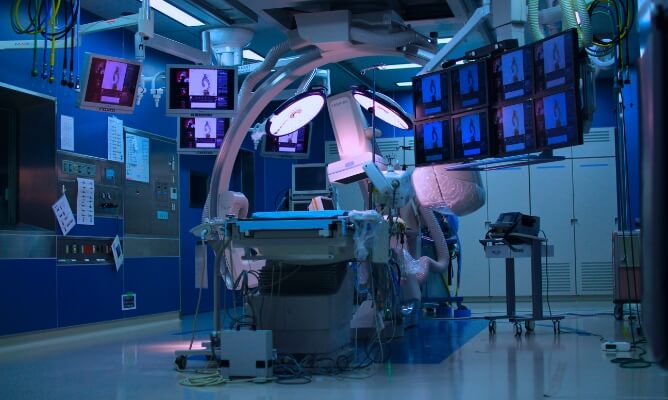
身体への負担が少なくご高齢の方も治療が可能に
心臓弁膜症治療分野の「経カテーテル大動脈弁治療術TAVI」や「経皮的僧帽弁接合不全修復システムMitraClip」。脳卒中予防が可能な「経皮的左心耳閉鎖システム WATCHMAN」など画期的なデバイスを積極的に採用。これらは一定の技術が認められた施設でしか使えません。カテーテル治療のトップランナーとして屈指の実績を誇ります。
広がる治療の選択肢
心臓弁膜症は、心臓にある「弁」が正しく機能しなくなった状態のことで、高齢化などで近年増加傾向にあります。体力低下や持病などにより従来の手術による弁置換が難しく、治療を諦めていた患者さんにいずれも適しています。
診療科の枠を超えた「ハートチーム」がサポート
当院では、2012年に心臓血管外科や循環器内科などの医師や看護師、薬剤師、放射線技師などによる「ハートチーム」を結成。治療を安全に成功させるため、診療科や職種の枠を超えたチーム医療で患者さん一人ひとりに最適な治療法をご提案し、治療後までサポートしております。
動悸・息切れ・疲れやすい
心臓弁膜症の自覚症状が強くなる前に、弁膜症治療センターに相談を。
心臓弁膜症は心臓にある4つの弁のどこかに障害が起こり、本来の働きを果たせなくなった状態です。弁の障害が強くなると心臓は全身に十分な血液を送ることができなくなり、心不全に陥ります。主な症状は「息切れ」「動悸」「胸痛」「だるさ」「むくみ」です。中には自覚症状に乏しく、診察時の聴診による心雑音や心電図異常がきっかけで受診される方もいます。
弁膜症治療センターでは、そうした患者さんに対し外来でまず検査を行い、心不全の度合いや弁膜症の有無を診断します。弁膜症と分かれば、①お薬の調整、②カテーテル治療、③心臓手術のうち、患者さんに合った治療法を選び、説明いたします。当院は心臓弁膜症に対する幅広い治療メニューがあるだけでなく、糖尿病やがんなどの持病を抱えた方でも、総合病院のメリットを生かし幅広くサポートいたします。
診療特定看護師

従来の看護師より幅広い医療行為が可能
当院では、2015年4月より「診療特定看護師」が活躍しております。診療特定看護師とは、国の定めにより大学院で2年間の高度実践看護教育を受けた後、医師の指示(手順書)のもと法律で定められた38の診療行為ができる看護師をいいます。
患者さんのつらさを少しでも早く、軽くするために
当院では、診療特定看護師の設置により、患者さんの状態に応じたよりタイムリーな医療を提供できることを目指しております。また、診療特定看護師がチーム医療のキーパーソンとなり、病院全体を通した看護技術の向上に努めております。
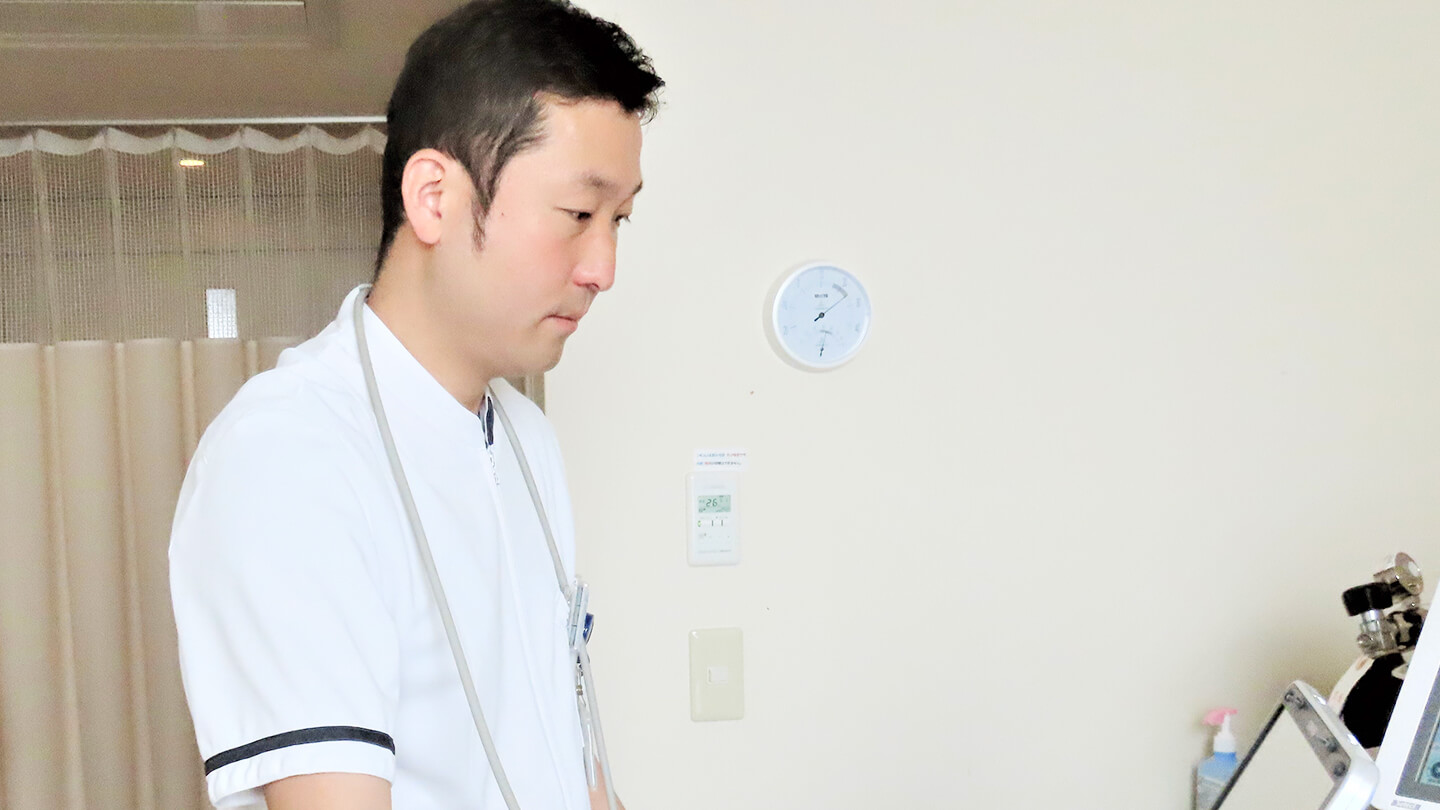
「診療特定看護師」として患者さんに必要な医療を提供したい
診療特定看護師/近藤 寛
団塊の世代が後期高齢者に突入する2025年以降も現在の医療の質を維持するために、幅広く高度な医学知識と一部の診療行為をタイムリーに実践できる看護師の育成が求められ、2015年に開始されたのが「看護師特定行為研修制度」です。アメリカでは、上級看護師として自律して診療行為を提供できる「ナース・プラクティショナー(NP)制度」というものがあり、診療特定看護師制度はこれを参考に導入されています。医療現場における我々の存在は、「患者さんに必要な医療を、必要なときに提供する」お役に立てるものと確信しております。今後は、この仕事の認知度を上げることや後輩の育成にも取り組んでまいります。
